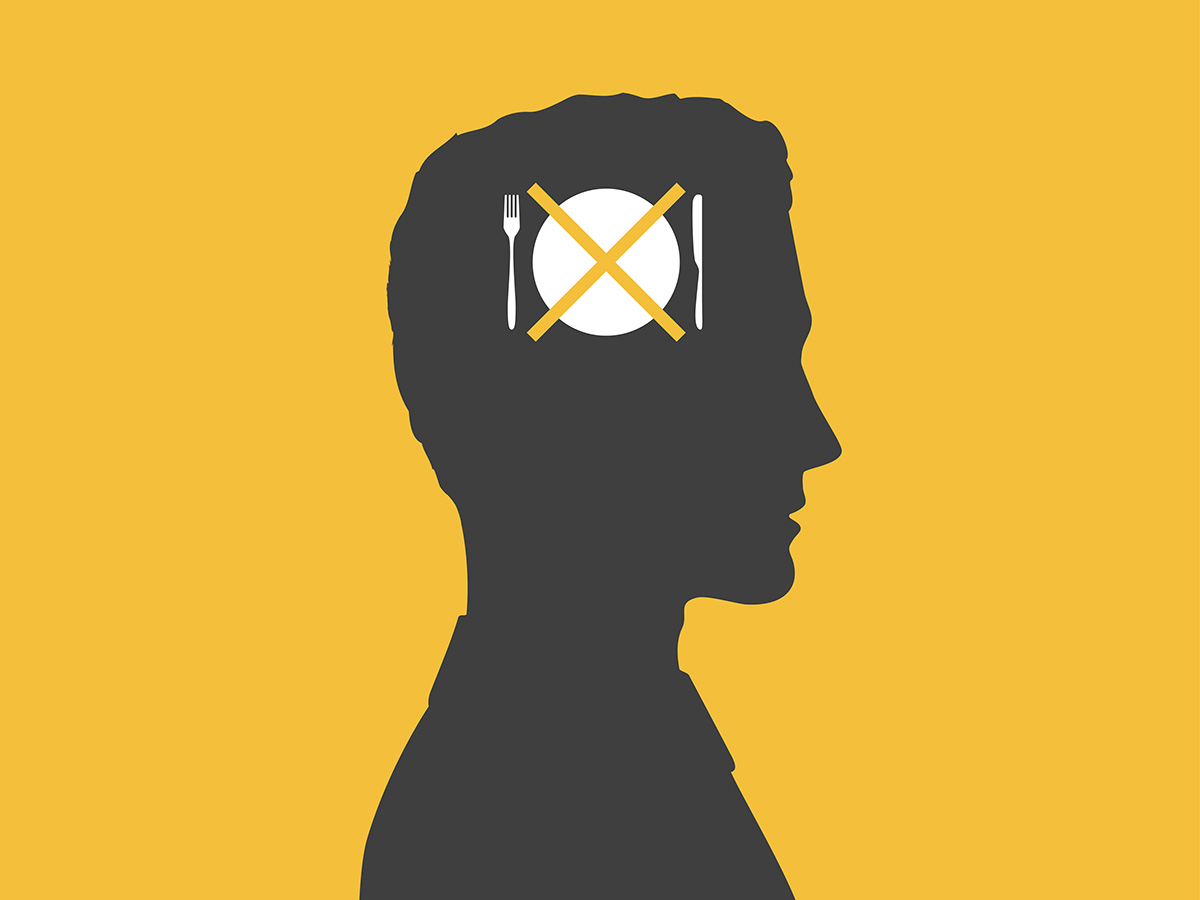 While the concept of eating disorders has become more broadly discussed over the last few years, less is understood about the psychology behind them — namely, what is happening inside the brain of a person who is struggling with an eating disorder.
While the concept of eating disorders has become more broadly discussed over the last few years, less is understood about the psychology behind them — namely, what is happening inside the brain of a person who is struggling with an eating disorder.
Eating disorders can be one of various coping mechanisms to manage an unresolved past trauma or overwhelming emotions such as stress, anxiety and depression.
Leah Pickett, DNP, advanced practice provider in the University of Alabama at Birmingham’s Department of Psychiatry and Behavioral Neurobiology, offers insight into the psychological factors involved in eating disorders.
Societal pressures and their impact on eating disorders
Constant exposure to societal views on food and body weight can significantly impact individuals dealing with eating disorders.
“We receive significant cultural messaging about food and weight on a daily basis,” Pickett said. “For those who harbor even a small amount of body dissatisfaction, this messaging can be incredibly harmful.”
Furthermore, she states that terms such as good, bad, clean and healthy used to describe food choices and eating habits can damage self-esteem and promote unhealthy behaviors.
“Sadly, the stigma surrounding eating disorders, much like other psychiatric conditions, persists due to widespread misunderstanding,” Pickett said.
According to Pickett, when combined with society's fixation on thinness and a narrow view of health and fitness, these factors can contribute to the development of disordered eating patterns.
In addition, social media has reinforced unrealistic body standards, particularly with the ease of manipulating photographs and videos through filters and artificial intelligence. Pickett adds that an even greater concern is the prevalence of hateful body-shaming comments and widespread nutrition misinformation.
“Even well-educated people may struggle to filter out evidence-based nutrition guidance and misleading information,” Pickett said.
She further notes that cultural conversations around food and body weight have focused on a narrow body ideal, ignoring the diversity of body shapes and sizes.
Key signs and behaviors for identifying eating disorders
There are several hallmark symptoms of disordered eating, including food restriction, food rituals, overexercising, eating in secret, unexplained weight changes, excessive body checking or comparisons, and negative body comments. However, Pickett points out that eating disorders often thrive in secrecy, making these symptoms difficult to detect until the condition becomes severe.
“A helpful approach is to routinely ask patients about their eating behaviors and body image while assessing their nutritional status during each visit,” Pickett said. “I’ve learned so much about my patients simply by asking about their typical eating habits, food preferences, access to food and feelings about their bodies.”
Pickett said questions as simple as “What did you eat yesterday?” or “How do you feel about your body?” can open the door to important conversations.
Psychological barriers to eating disorder treatment
Perfectionism and unresolved trauma are two significant barriers to overcoming eating disorders. These psychological factors can cause individuals to set unrealistically high standards for themselves and may stem from past experiences that are never fully processed. Pickett shares that society’s fixation on physical appearance presents a major challenge to recovery, as it reinforces the false belief that a smaller body size equals better health.
“In reality, the relationship between body size and health is far more complex and nuanced than suggested,” Pickett said.
Impact of coexisting mental health conditions on treatment
It can be increasingly difficult to address eating disorders when co-occurring mental health conditions are not simultaneously managed. Conditions such as depression, anxiety, OCD, PTSD, ADHD and other co-occurring mental health conditions must be addressed alongside eating disorder treatment for patients to achieve the best outcomes.
“For example, if someone is struggling with depression, managing those symptoms can take much of their energy and focus, leaving little capacity to address disordered eating,” Pickett said.
She emphasized the importance of treating the underlying mental health disorder, adding, “One of my initial steps is to assess for any co-occurring psychiatric illness and create a treatment plan that includes both medication and individual therapy.”
Health care providers as advocates in eating disorder recovery
Health care providers can play a crucial role as advocates and allies for their patients.
“Building rapport, asking about their concerns related to body image or nutrition, and providing unconditional positive regard is invaluable in supporting their recovery,” Pickett said. “This may require us to confront our own biases about weight and body size, but it will help us better address the needs of our patients in the long run.”
In treating eating disorders, it is essential to tailor approaches to each patient’s unique needs and circumstances. Pickett emphasizes the importance of individualized care, explaining that, while each patient is unique, she generally uses affirming techniques to boost self-esteem.
“These approaches help identify and address problematic eating behaviors while enhancing coping skills,” she said.